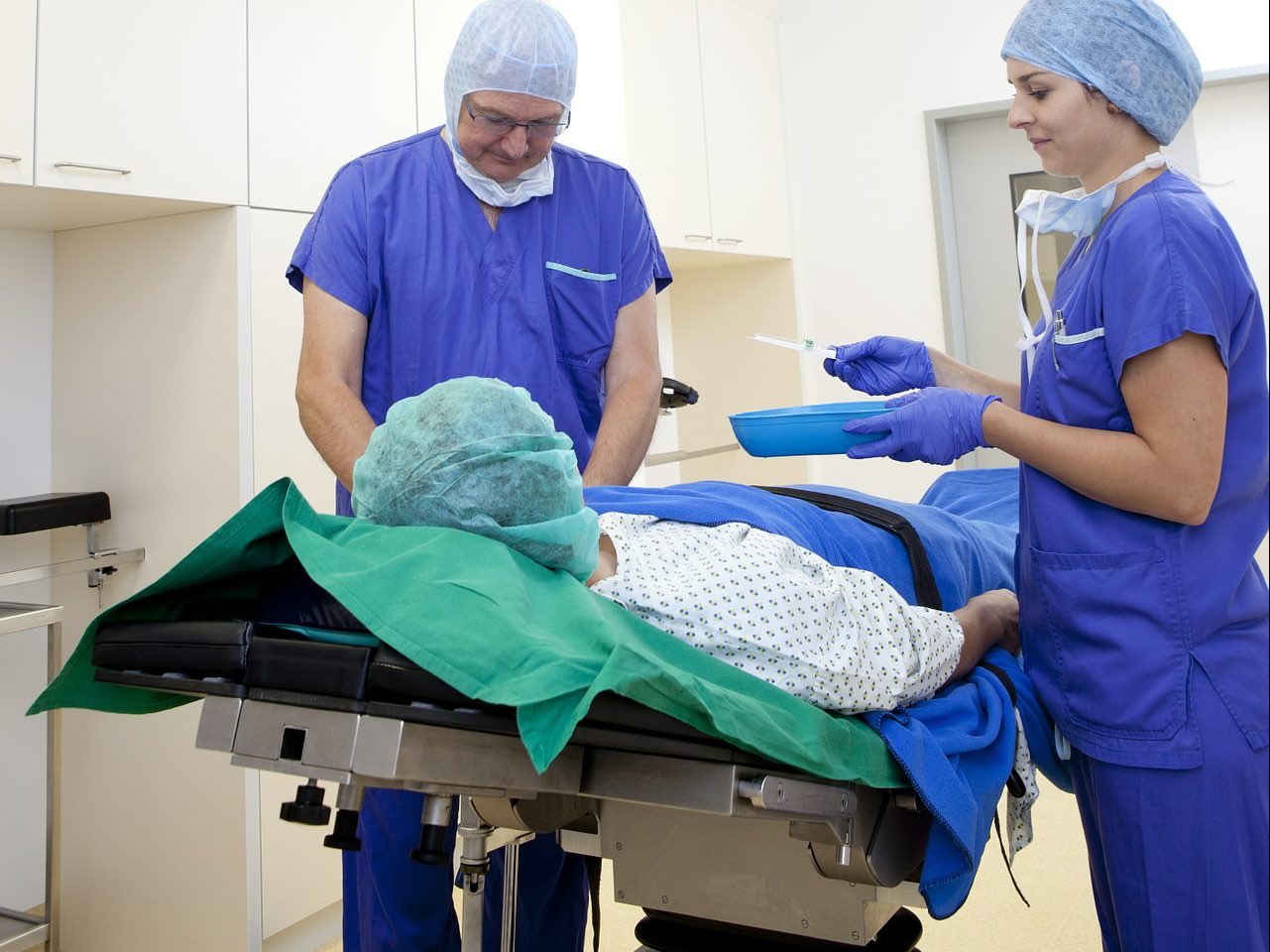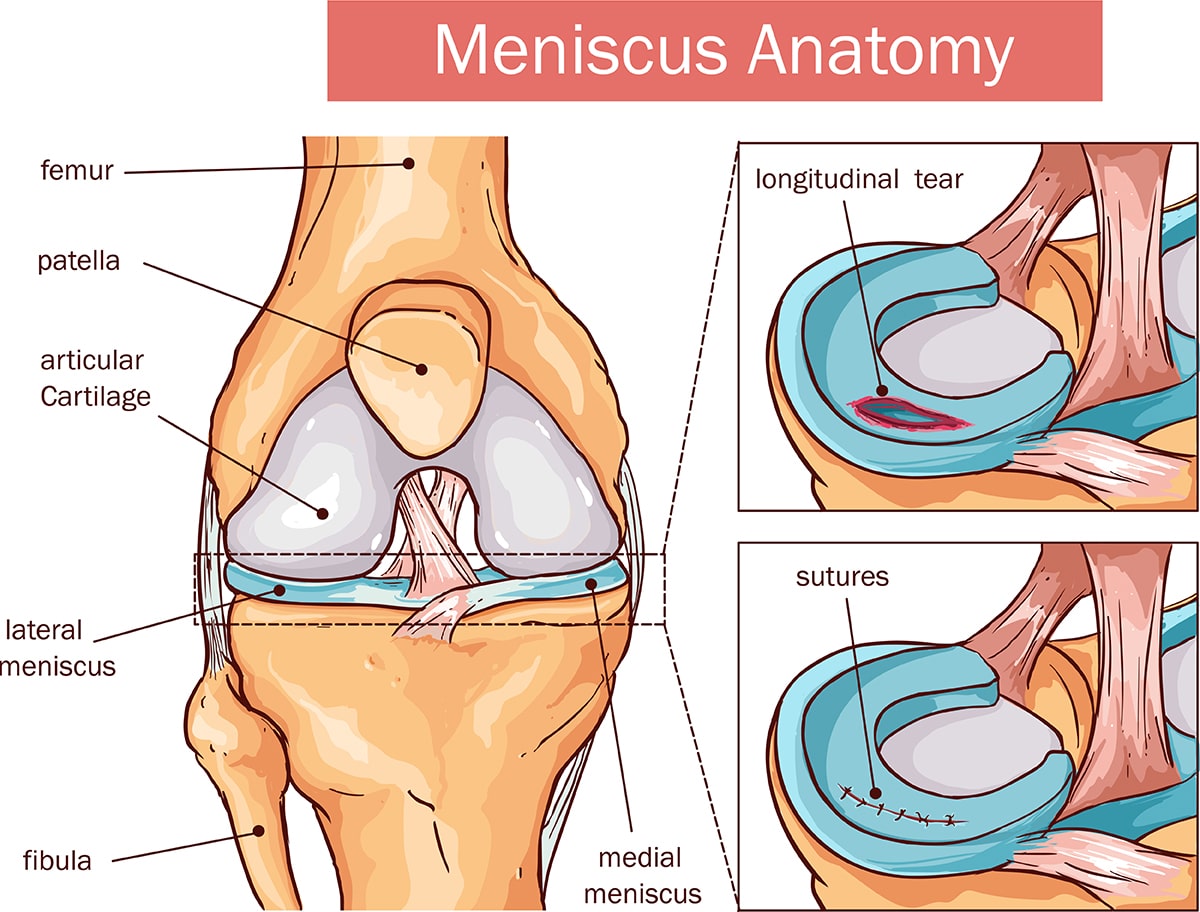Home>Finance>How Much Is Gallbladder Surgery Without Insurance?


Finance
How Much Is Gallbladder Surgery Without Insurance?
Published: November 16, 2023
Find out the cost of gallbladder surgery without insurance, and explore financial options to cover the expenses. Budget wisely for your medical needs.
(Many of the links in this article redirect to a specific reviewed product. Your purchase of these products through affiliate links helps to generate commission for LiveWell, at no extra cost. Learn more)
Table of Contents
Introduction
Gallbladder surgery, also known as cholecystectomy, is a common surgical procedure performed to remove the gallbladder when it is inflamed or contains gallstones. It is estimated that over 600,000 cholecystectomies are performed in the United States each year.
The gallbladder is a small organ located beneath the liver, responsible for storing bile, a digestive fluid that helps break down fats. While the gallbladder plays a role in digestion, it is not considered essential for survival. Therefore, if gallbladder problems arise, such as inflammation or the presence of gallstones, surgery may be recommended to remove the organ.
For individuals who are fortunate enough to have health insurance coverage, the cost of gallbladder surgery is typically covered to some extent. However, for those without insurance, the financial burden can be significant.
This article will provide an overview of gallbladder surgery and delve into the factors that affect the cost of the procedure. We will also explore the options available for financing gallbladder surgery without insurance and provide tips for finding affordable solutions.
It is important to note that while this article provides valuable information on the topic, it should not be considered a substitute for professional medical advice. If you are experiencing gallbladder problems, it is essential to consult with a qualified healthcare professional for an accurate diagnosis and personalized treatment plan.
Understanding Gallbladder Surgery
Gallbladder surgery, or cholecystectomy, is a surgical procedure performed to remove the gallbladder. There are two main types of gallbladder surgery: open cholecystectomy and laparoscopic cholecystectomy.
In an open cholecystectomy, a large incision is made in the abdomen to access the gallbladder. This traditional approach is typically used when there are complications or the surgeon needs better visualization during the procedure.
Laparoscopic cholecystectomy, on the other hand, is a minimally invasive procedure that involves making several small incisions in the abdomen. A laparoscope, a thin tube with a camera, is inserted through one incision to provide a visual guide to the surgeon, while surgical instruments are inserted through the other incisions to remove the gallbladder.
Laparoscopic cholecystectomy is the most commonly performed method due to its advantages, including shorter recovery time, smaller incisions, reduced pain, and lower risk of post-operative complications.
Gallbladder surgery may be recommended for various reasons, including:
- Gallstones: These are hardened deposits that can develop in the gallbladder, causing pain and obstructing the bile ducts.
- Gallbladder inflammation (cholecystitis): Inflammation of the gallbladder can lead to severe abdominal pain, fever, and other symptoms.
- Gallbladder polyps: These are abnormal growths in the gallbladder, which can be precancerous and may require surgical removal.
- Biliary dyskinesia: This condition refers to the dysfunction of the gallbladder, where it fails to contract and empty properly.
Before undergoing gallbladder surgery, your healthcare provider will conduct a thorough evaluation, which may include imaging tests, blood work, and possibly a cholecystogram to assess the extent of the problem and determine the most appropriate course of action.
The decision to proceed with gallbladder surgery ultimately depends on the severity of symptoms, the frequency and intensity of gallstone attacks, and the potential complications that may arise if the condition is left untreated.
Once the decision has been made to proceed with surgery, it is essential to discuss the procedure, potential risks and complications, and post-operative care with your surgeon. Understanding the ins and outs of gallbladder surgery will help you make informed decisions and be better prepared for the procedure and recovery process.
Factors Affecting the Cost of Gallbladder Surgery
The cost of gallbladder surgery can vary significantly based on several factors. Understanding these factors will help you better grasp why the cost of the procedure can vary from person to person. Here are some key factors that affect the cost of gallbladder surgery:
- Geographical Location: The cost of healthcare services can vary widely depending on the location. In general, urban areas and regions with higher costs of living tend to have higher medical expenses. The availability of healthcare providers and facilities in a particular area can also influence the cost.
- Type of Surgery: The type of gallbladder surgery you undergo can impact the cost. Laparoscopic cholecystectomy is typically less expensive than open cholecystectomy due to its minimally invasive nature and shorter recovery time. Open surgery may require a longer hospital stay, which can contribute to higher costs.
- Hospital Charges: Different hospitals have varying cost structures and pricing policies. Factors such as the hospital’s reputation, facilities, and level of specialization may contribute to higher charges.
- Surgeon’s Fees: The experience and expertise of the surgeon performing the procedure can influence the cost. Surgeons with a high level of skill and reputation may charge higher fees for their services.
- Anesthesia: The cost of anesthesia during the surgery is a significant factor. Anesthesia charges typically depend on the duration of the procedure and the type of anesthesia used, whether general or regional.
- Pre and Post-Operative Care: Medical tests, consultations, and medications before and after surgery may add to the overall cost. Additionally, follow-up visits or complications that require additional medical attention may increase expenses.
- Insurance Coverage: For individuals with health insurance, the cost of gallbladder surgery is usually covered to some extent. However, the specific insurance plan, deductibles, copayments, and out-of-pocket expenses can vary, which might affect the overall cost for the patient.
It is important to note that the estimated costs of gallbladder surgery provided by healthcare providers usually include basic expenses. However, there may be additional costs related to pathology tests, imaging, or unforeseen complications that can add to the final bill.
Considering these factors, it is evident that the cost of gallbladder surgery can be substantial. If you do not have insurance coverage, it becomes even more crucial to explore alternative options for financing the procedure or to find affordable solutions.
Cost of Gallbladder Surgery Without Insurance
Gallbladder surgery is a major surgical procedure that can come with a hefty price tag, especially for individuals without health insurance coverage. It is important to be aware of the potential costs involved to make informed decisions and plan accordingly.
The cost of gallbladder surgery without insurance can vary significantly depending on various factors, including the geographical location, type of surgery, hospital charges, surgeon’s fees, and anesthesia costs, as mentioned earlier. However, on average, the cost of gallbladder surgery can range from $10,000 to $20,000 or even higher.
Keep in mind that these costs typically include the surgeon’s fees, hospital charges, anesthesia, and basic pre and post-operative care. However, additional expenses, such as diagnostic tests, medications, and any potential complications that require additional medical attention, can significantly increase the overall cost.
Without insurance, individuals are responsible for paying the entire cost of the procedure out of pocket. This can be a substantial financial burden for many, potentially leading to significant debt or even postponing or forgoing the necessary surgery.
If you find yourself without insurance coverage and facing the need for gallbladder surgery, it is crucial to explore alternative options for financing the procedure.
One possible option is to negotiate with the healthcare provider or hospital for a discounted rate. Many providers are willing to work with patients to establish affordable payment plans or offer reduced rates for individuals without insurance. It is important to communicate openly with your healthcare provider and discuss your financial situation and concerns.
In addition, some hospitals and clinics offer financial assistance programs or charity care for individuals who qualify based on their income level. These programs can help alleviate the financial burden and provide access to necessary medical care.
Another option to consider is seeking out low-cost or free clinics in your area that may provide gallbladder surgery at a reduced cost or on a sliding fee scale. These clinics often cater to individuals without insurance or those with limited financial resources and can provide much-needed assistance.
Researching and comparing prices from different healthcare providers or hospitals can also help you find more affordable options. It is important to keep in mind that cost should not be the only factor in your decision-making process; the quality and reputation of the healthcare provider should also be considered.
Finally, exploring medical tourism options might be a viable choice for some individuals. Traveling to another country where the cost of medical procedures, including gallbladder surgery, is significantly lower can potentially save a substantial amount of money. However, it is important to thoroughly research healthcare providers, ensure their credentials and reputation, and understand all associated costs and risks before pursuing this option.
Ultimately, the cost of gallbladder surgery without insurance can be daunting, but there are options available to help make it more affordable. It is important to explore these options and seek assistance to ensure that you receive the necessary medical care without incurring overwhelming financial burdens.
Options for Financing Gallbladder Surgery
Given the high cost of gallbladder surgery, it is essential to explore various options for financing the procedure. Here are some options to consider:
- Healthcare Financing Programs: Some healthcare financing programs, such as medical credit cards or loans specifically designed for medical expenses, offer flexible payment plans and low-interest rates. These options can help spread out the cost of gallbladder surgery over time, making it more manageable to pay off.
- Negotiate Payment Plans: Many healthcare providers and hospitals are willing to negotiate payment plans for patients without insurance. By discussing your financial situation and concerns with the billing department, you may be able to establish a payment plan that fits your budget.
- Medical Savings Accounts: If you have a Health Savings Account (HSA) or a Flexible Spending Account (FSA), you can use the funds to cover the cost of gallbladder surgery. These accounts allow you to set aside pre-tax dollars specifically for medical expenses. Consult with your account provider to determine the eligibility and coverage of the surgery.
- Charity Care and Financial Assistance: Some hospitals offer financial assistance programs or charity care for individuals who meet certain income criteria. These programs can provide reduced fees or even cover the entire cost of the surgery for eligible patients. Contact your local hospitals or healthcare organizations to inquire about the availability of such programs.
- Insurance Coverage Options: If you do not have insurance coverage, it may be worth exploring your options to obtain coverage. This could include investigating private health insurance plans, enrolling in a government-sponsored healthcare program, or exploring eligibility for coverage through a spouse or parent’s plan.
- Crowdfunding: Crowdfunding platforms provide an opportunity to raise funds for medical expenses, including gallbladder surgery. By sharing your story on crowdfunding websites, you can reach out to friends, family, and even strangers who may be willing to contribute to your cause.
- Medical Tourism: In some cases, seeking gallbladder surgery in countries with lower healthcare costs can be a more affordable option. However, it is crucial to thoroughly research the healthcare providers, understand the associated risks, and account for additional expenses such as travel and accommodations.
It is important to carefully evaluate each financing option based on your personal circumstances and financial capabilities. Consider factors such as interest rates, repayment terms, and eligibility requirements before making a decision. Additionally, consult with your healthcare provider and financial advisor to better understand the potential impact of each option on your financial well-being.
Remember, the primary goal is to ensure you receive the necessary medical care while minimizing the financial burden. By exploring these financing options and seeking assistance, you can make gallbladder surgery more affordable and accessible.
Tips for Finding Affordable Gallbladder Surgery Options
If you are seeking affordable options for gallbladder surgery, there are several tips that can help guide your search:
- Research and Compare: Take the time to research and compare prices from different hospitals and healthcare providers in your area. Look for facilities that specialize in minimally invasive surgery and have a reputation for providing quality care at reasonable costs.
- Seek Out Low-Cost Providers: Look for low-cost or free clinics in your community that may offer gallbladder surgery at reduced rates. These clinics often cater to individuals without insurance or those with limited financial resources and can provide more affordable options.
- Consider Teaching Hospitals: Teaching hospitals associated with medical schools often provide high-quality healthcare at lower costs. They may offer discounted rates for procedures performed by resident doctors under the supervision of experienced faculty members.
- Discuss Payment Options: Talk to the billing department or financial counselors of healthcare providers to discuss payment plans or potential discounts for self-pay patients. Many providers are willing to work out affordable solutions to help make the cost of surgery more manageable.
- Explore Government Programs: Determine if you are eligible for government-sponsored healthcare programs or assistance programs specifically designed to help individuals without insurance cover the cost of medical procedures. Examples include Medicaid or local programs for low-income individuals.
- Utilize Prescription Discount Programs: If you require post-operative medications, look for prescription discount programs that can help reduce the cost of your prescriptions. These programs are often available at pharmacies and can save you a significant amount of money.
- Consider Telemedicine Consultations: Some healthcare providers offer telemedicine consultations for certain procedures. This can be a cost-effective option for initial consultations and follow-up appointments, as it eliminates the need for travel expenses and reduces the overall cost of care.
- Engage in Medical Tourism Options: Research medical tourism options carefully, considering costs and the reputation of healthcare providers in the destination country. While it can be a more affordable option, it is important to weigh the potential risks, additional travel expenses, and ensure the quality of care meets your expectations.
- Consult with Financial Advisors: Seek advice from financial advisors or healthcare advocacy services that specialize in medical cost management. They can provide guidance on finding cost-effective options, negotiating bills, and maximizing your resources.
Remember, finding affordable gallbladder surgery options requires thorough research, open communication with healthcare providers, and proactive exploration of available resources. Prioritize your health and well-being while being mindful of the financial impact. With the right approach and assistance, you can find an affordable solution that meets your needs.
Conclusion
Gallbladder surgery is a significant medical procedure that can come with a substantial financial burden, especially for individuals without insurance coverage. However, there are various options available to help make gallbladder surgery more affordable and accessible.
Understanding the factors that affect the cost of gallbladder surgery, such as geographical location, type of surgery, hospital charges, surgeon’s fees, and anesthesia costs, is crucial in estimating the potential expenses. It is also important to explore financing options such as healthcare financing programs, negotiating payment plans, utilizing medical savings accounts, and researching charity care or financial assistance programs.
When searching for affordable options, it is advisable to research and compare prices, seek out low-cost providers or teaching hospitals, discuss payment options with healthcare providers, and explore government-sponsored healthcare programs or prescription discount programs. Additionally, considering telemedicine consultations and medical tourism options can provide cost-effective alternatives.
Finding affordable gallbladder surgery options requires proactive efforts and open communication with healthcare providers and financial advisors. It is essential to prioritize your health and well-being while being mindful of the financial implications.
Ultimately, whether you have insurance coverage or not, it is important to remember that your health should always be the top priority. If you are experiencing gallbladder problems and require surgery, consult with a qualified healthcare professional to determine the best course of action and explore the available options to ensure you receive the necessary care.
By understanding the costs, exploring financing options, and advocating for yourself, you can navigate the path to affordable gallbladder surgery and take steps towards better health and well-being.














